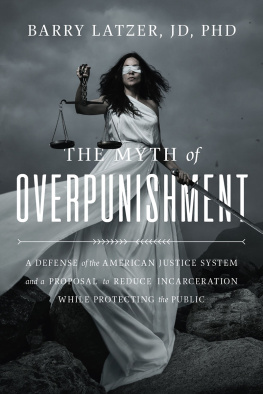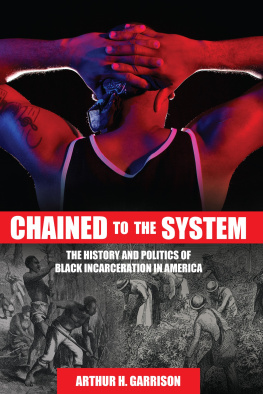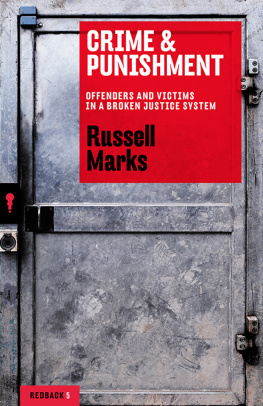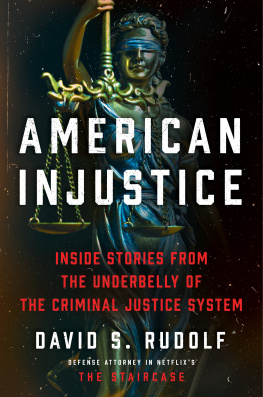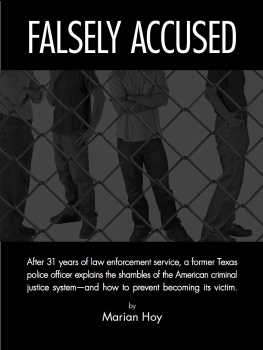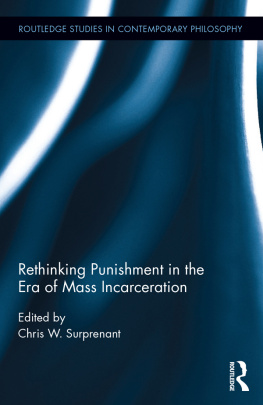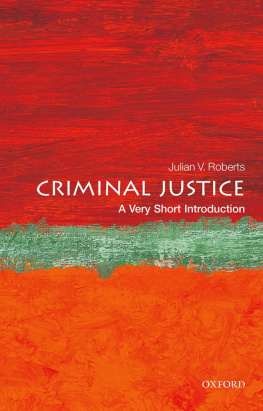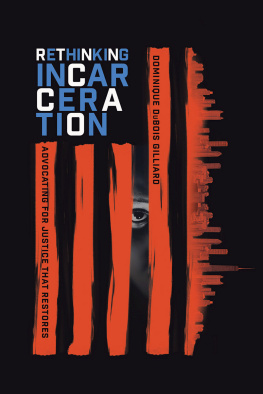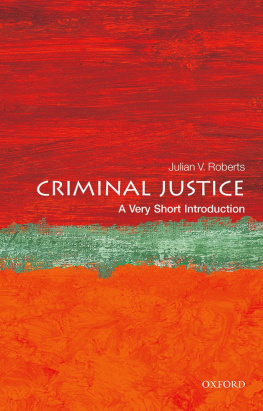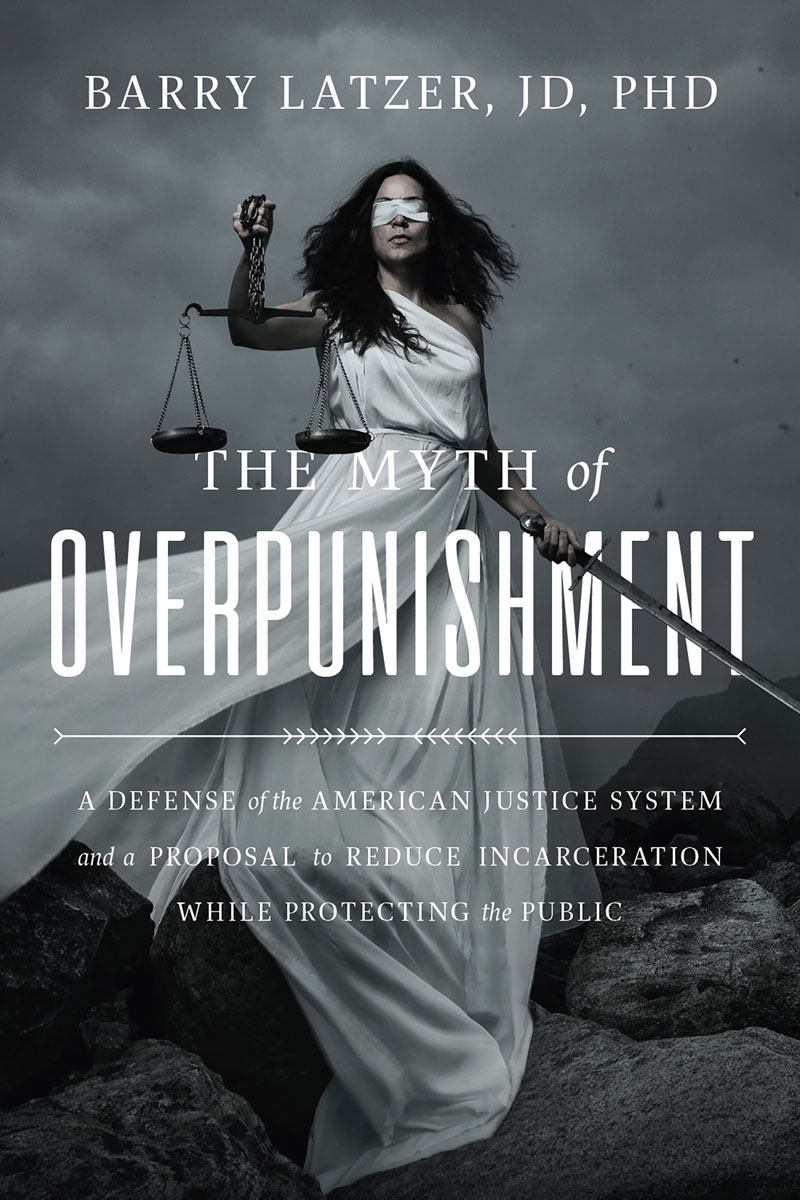Barry Latzer - The Myth of Overpunishment: A Defense of the American Justice System and a Proposal to Reduce Incarceration While Protecting the Public
Here you can read online Barry Latzer - The Myth of Overpunishment: A Defense of the American Justice System and a Proposal to Reduce Incarceration While Protecting the Public full text of the book (entire story) in english for free. Download pdf and epub, get meaning, cover and reviews about this ebook. year: 2022, publisher: Republic Book Publishers, genre: Politics. Description of the work, (preface) as well as reviews are available. Best literature library LitArk.com created for fans of good reading and offers a wide selection of genres:
Romance novel
Science fiction
Adventure
Detective
Science
History
Home and family
Prose
Art
Politics
Computer
Non-fiction
Religion
Business
Children
Humor
Choose a favorite category and find really read worthwhile books. Enjoy immersion in the world of imagination, feel the emotions of the characters or learn something new for yourself, make an fascinating discovery.
- Book:The Myth of Overpunishment: A Defense of the American Justice System and a Proposal to Reduce Incarceration While Protecting the Public
- Author:
- Publisher:Republic Book Publishers
- Genre:
- Year:2022
- Rating:4 / 5
- Favourites:Add to favourites
- Your mark:
The Myth of Overpunishment: A Defense of the American Justice System and a Proposal to Reduce Incarceration While Protecting the Public: summary, description and annotation
We offer to read an annotation, description, summary or preface (depends on what the author of the book "The Myth of Overpunishment: A Defense of the American Justice System and a Proposal to Reduce Incarceration While Protecting the Public" wrote himself). If you haven't found the necessary information about the book — write in the comments, we will try to find it.
This book is a defense of our incarceration system. The history of punishment in the United States, discussed in vivid detail, reveals that the treatment of offenders has become progressively more lenient. The actual time served in prison is in line with historical practice. Corporal punishment is no more. The virtual slavery of the convict lease is long over. The death penalty has become a rarity. Only 20 percent of prisoners serve full terms and many convicted defendants are given no-incarceration sentences. In fact, 30 percent of all convicted felons and 22 percent of violent offenders are released without spending a single day in prison. Moreover, the median time served for those who do enter state prison is a mere one year and four months.
Nor are state prisoners behind bars for minor offenses. That is another false claim. A majority of inmates55 percentare serving time for serious violent crimes, including murder, rape, and assault. Eighteen percent are in for major property crimes, such as burglary and theft. Fifteen percent committed drug crimes, but contrary to the critics who claim that drug prosecutions are designed to snare harmless users, only 3.5 percent of the sentences were for mere possession. The rest of the inmate population, 12 percent, is serving time for public order crimes, including illegal gun possession and drunk driving. All of the above are serious crimes, often committed by repeat offenders.
The decarcerationists will have to deal with these realities if they are to make their case. Even if they can refute or spin the data they face an insuperable obstacle: when it comes to major crimes less punitive alternatives to imprisonment simply do not exist. The restorative justice movementa counselled encounter of crime victims and perpetrators who acknowledge the harm that they causeis touted as the alternative to prison. Restorative justice may be a good thing for low-level offenses, or as an add-on for remorseful prisoners. But when it comes to major crimes it is no substitute for punitive justice.
If we really want to reduce incarceration while protecting the public we should rely on technology to monitor released offenders. The Myth of Overpunishment presents a workable and politically feasible plan to electronically monitor arrested suspects prior to adjudication (bail reform), defendants placed on probation, and parolees. A major expansion in electronic monitoring of released offenders will create powerful incentives to conform to the conditions of release. This would shrink the incarcerated population without increasing the risks to the public.
Barry Latzer: author's other books
Who wrote The Myth of Overpunishment: A Defense of the American Justice System and a Proposal to Reduce Incarceration While Protecting the Public? Find out the surname, the name of the author of the book and a list of all author's works by series.

